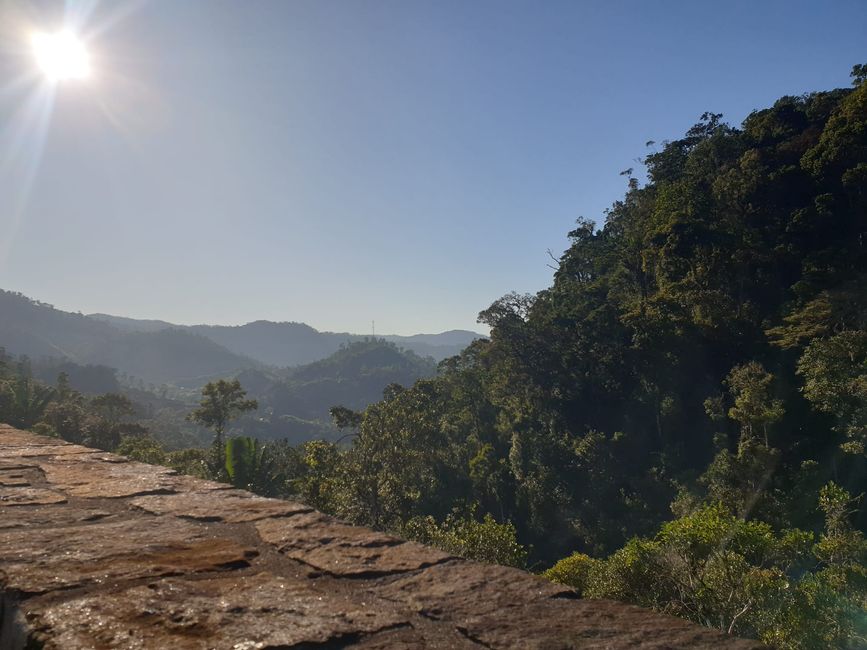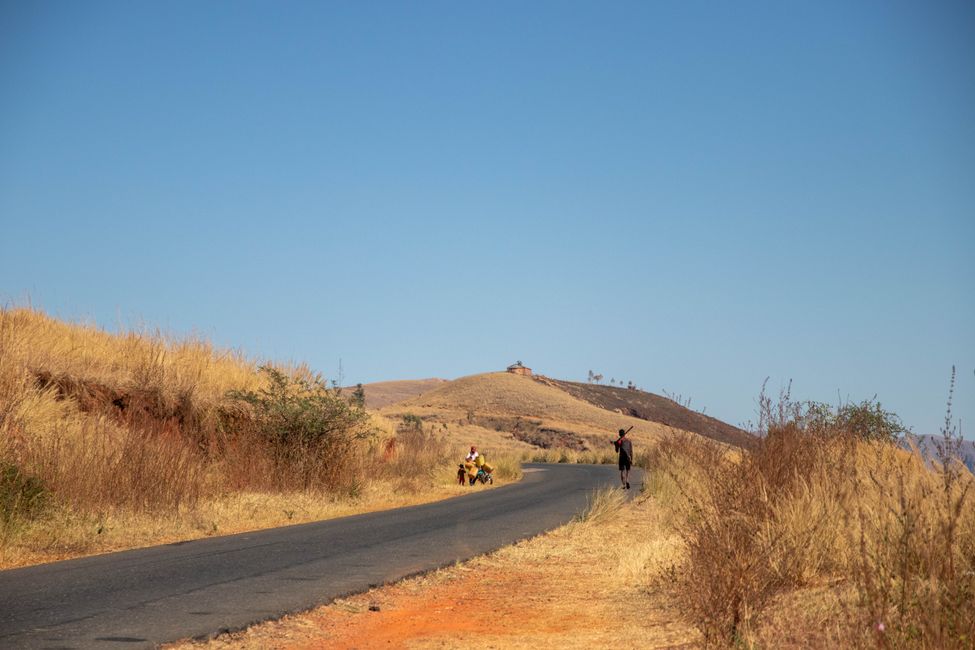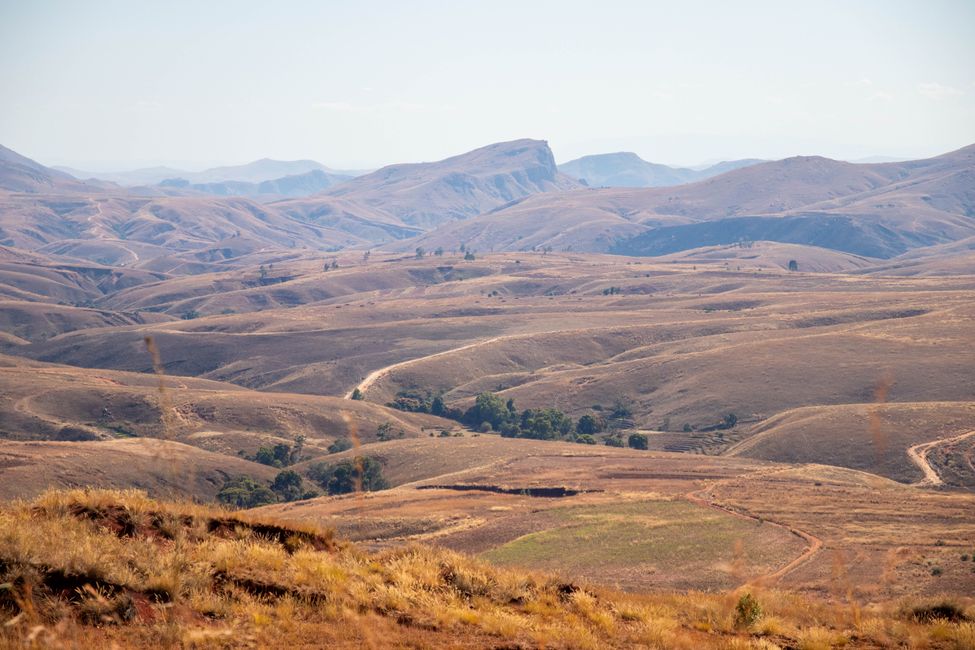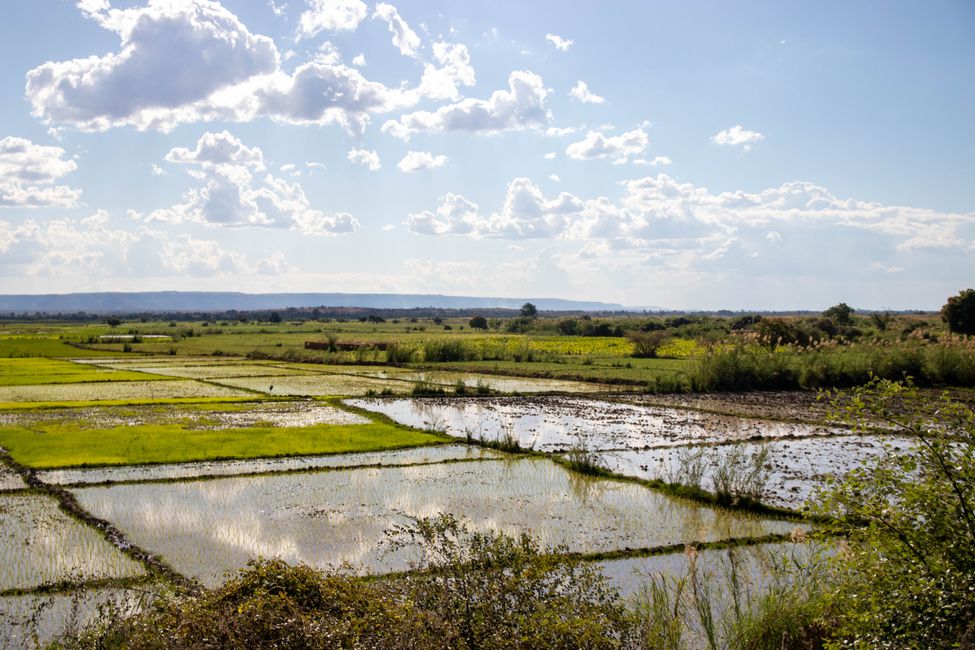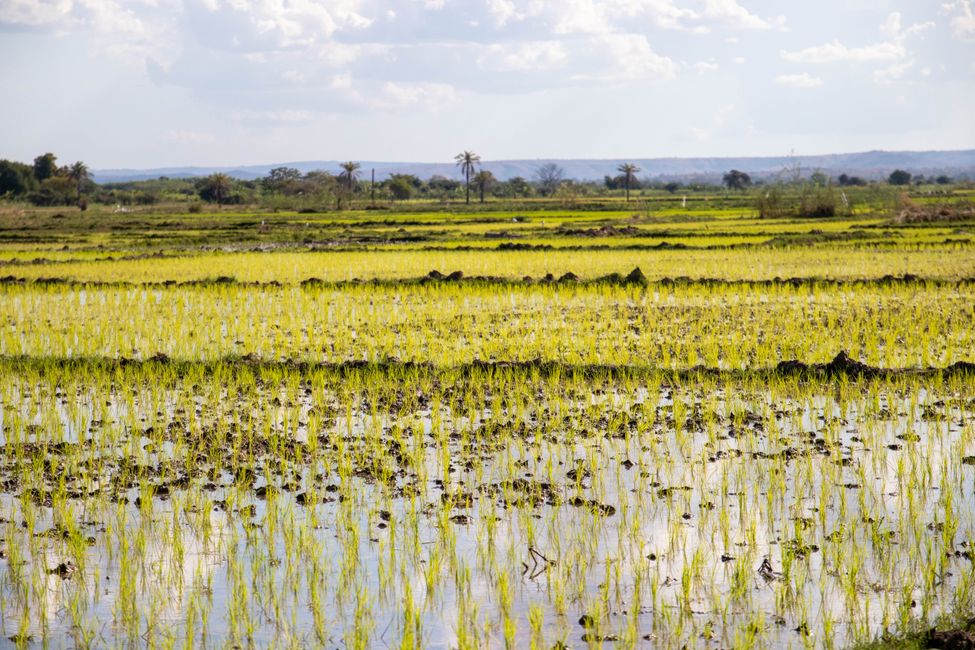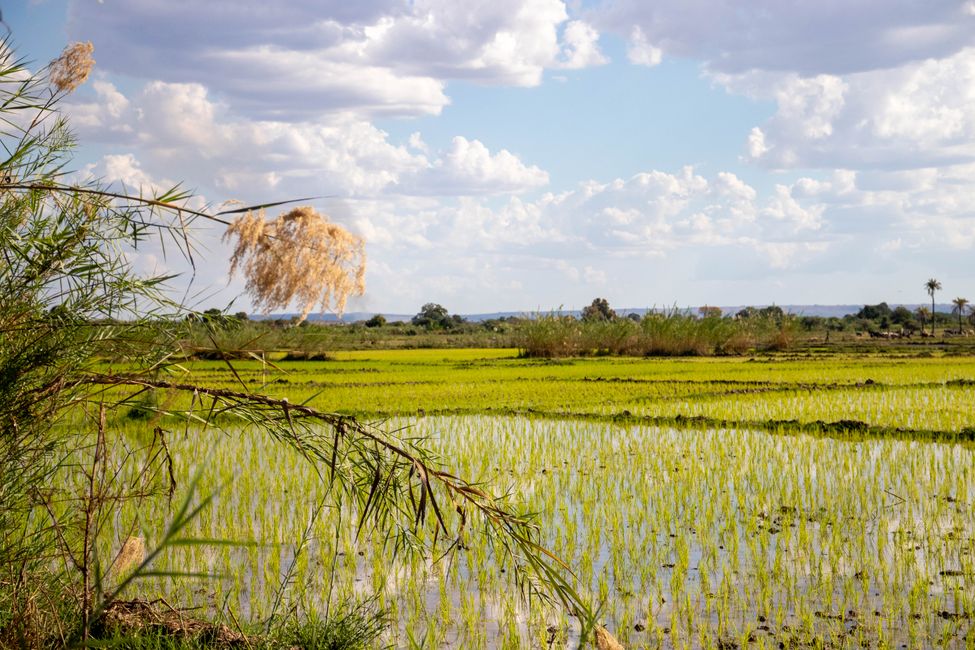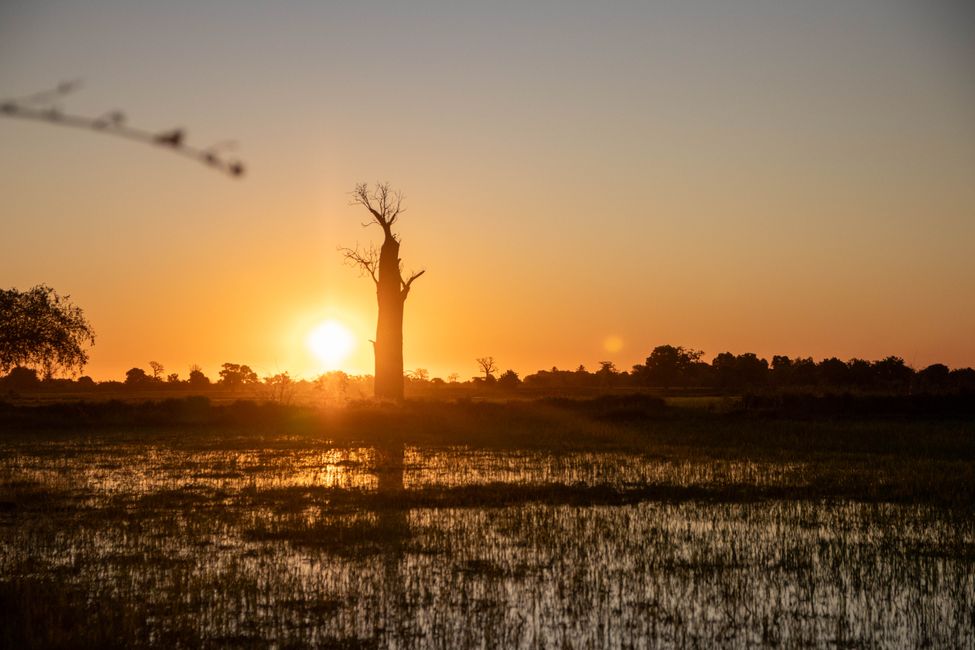Drive to the coast
प्रकाशित: 15.08.2023
Plan for the day: Early start at 7 am. Drive to Morondava. Arrive approximately 12 hours later with a lunch break.
Fact of the day: In the south, people have large herds of zebus. When a zebu owner dies, the family has to kill all the zebus so that their ancestors can follow the owner's. Mangoes are ripe during the rainy season. They can only be harvested once they have been rained on to wash the skin clean.
Today, we need to wake up early, breakfast is at 6 am, and we'll leave at 7. Manantsoa arrives and drinks another tea, then we zoom off. It's still very foggy and the sand on the road looks almost like snow. But that quickly disappears. As the sun rises, the temperatures rise too. We drive westward and I sit on the north side of the car in the sun. With every kilometer, I melt a little more, but it's okay. We occasionally take a short break. As the Malagasy say, "A human is not a chicken." We see herds of zebus being driven through the landscape on their way to the next feeding place or livestock market. Colorful villages, people washing their laundry in the rivers, laughing children waving at us and laughing happily when we wave back. They come running when we stop and radiate incredible satisfaction. Poorer villages are usually in the dry regions where there is no river nearby. Here, the people sometimes look sad or beggarly. The children shovel dirt into potholes and beg for money. We pass colorful markets with fruits, vegetables, and all kinds of handicrafts in some villages. We also see zebu carts and herds of goats on the road. Suddenly, Manatsoa stops: "A chameleon!" Our personal highlight. It crosses the road and we get out to save it. When a taxi-brousse comes rushing by and narrowly misses the chameleon, I briefly have a heart stop, but it continues crawling. We tap it and it quickly scurries to the other side. Chameleons can run fast too! We have a little photoshoot and hold it in our hand. Then we continue driving. The landscape becomes dryer, sometimes a river and some rice fields appear. Eventually, we cross a river. Here is the border between the Merina people, the highlanders, and the coastal dwellers. The road is quite bumpy with many potholes. Eventually, a city suddenly appears out of nowhere. "We'll have lunch break here." Phew, it's incredibly hot. We stop in front of a restaurant and it's pleasantly cool inside. This is probably where everyone stops who is on the way to Morondava. After lunch, we continue and pass some fields with sugarcane and mango trees. Unfortunately, they are ripe in the rainy season. We continue westward, beautiful rice fields follow, and we take a few photo breaks. Children come running, waving and shouting "Vazaha". They expect nothing, simply happy with a wave and a smile, and laugh when we greet them with "Salama!". Eventually, Manatsoa points to the first baobab tree and we marvel at the huge trees. Some palm trees follow and the land becomes increasingly green. We approach the coast. In the backlight of the sunset, the roads, villages, and rice fields look beautiful and I enjoy the journey into the night. Eventually, the sun sets and the sky is just bright orange. Unbelievable. We reach the city of Morondava and it quickly becomes clear that there are many people of different origins here. Locals, guests, and Vazaha. Although it's probably not appropriate to call many of them "tourists". On the contrary, it's a pleasant encounter and the Vazaha quickly greet each other with "Bonjour!" across the street. The locals recognize guests, we can tell because we are almost ignored on the street. Search nicely, at least for a few days. We drive to our accommodation by the river, near the beach. It's a cute hotel with a few rooms and a great terrace outside by the river. I need a shower, but before that, we go to a seafood restaurant. I am brave and order baobab juice and a grilled fish with vegetables. It takes a long time for the food to come, following the motto: Mora Mora. They take it very seriously here. Occasionally, the power goes out and we read the menu with flashlights. After 90 minutes, the food arrives and it's actually very good. Kevin delves into the idea of vanilla trading and we wonder how much a New York bakery would pay for vanilla. After dinner, we walk back to the hotel under the starry sky and I take a shower, or not. Suddenly, the water runs out. Well, too bad. Luckily, I haven't soaped myself yet. I go to bed a little sad without a shower. Suddenly, the water comes back and ta-da, the rooster announces it. A quick cold shower feels very good.
उत्तरम्

